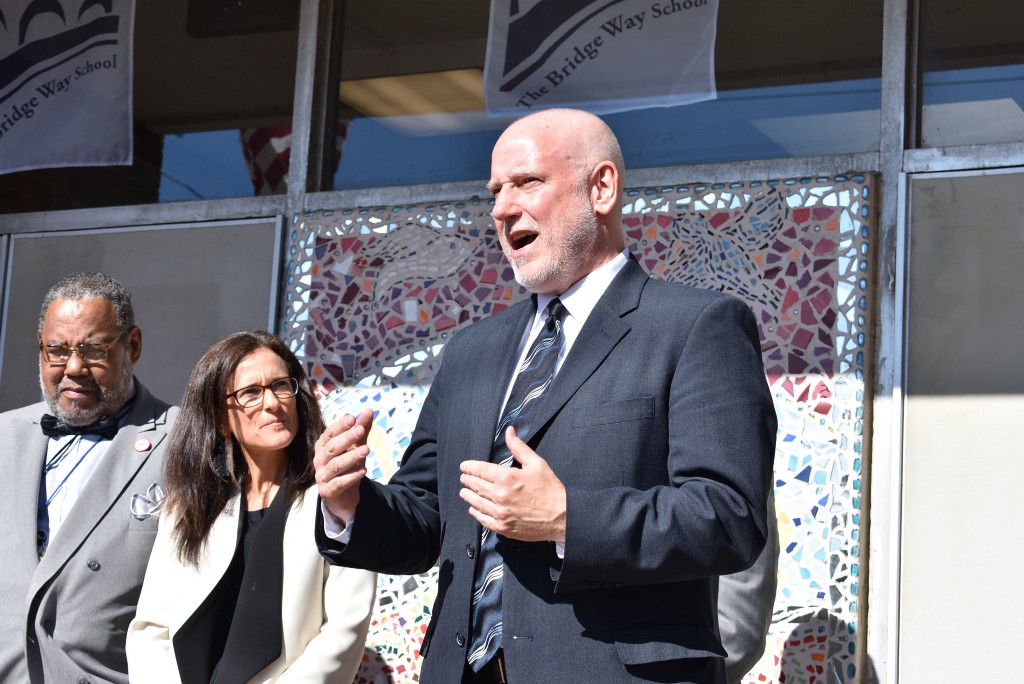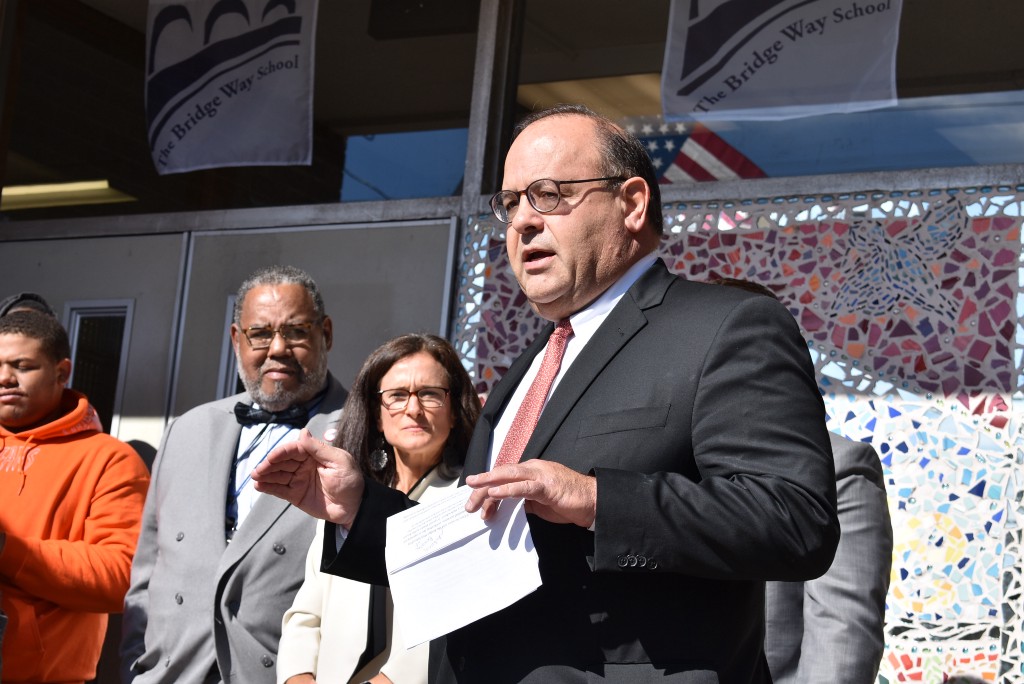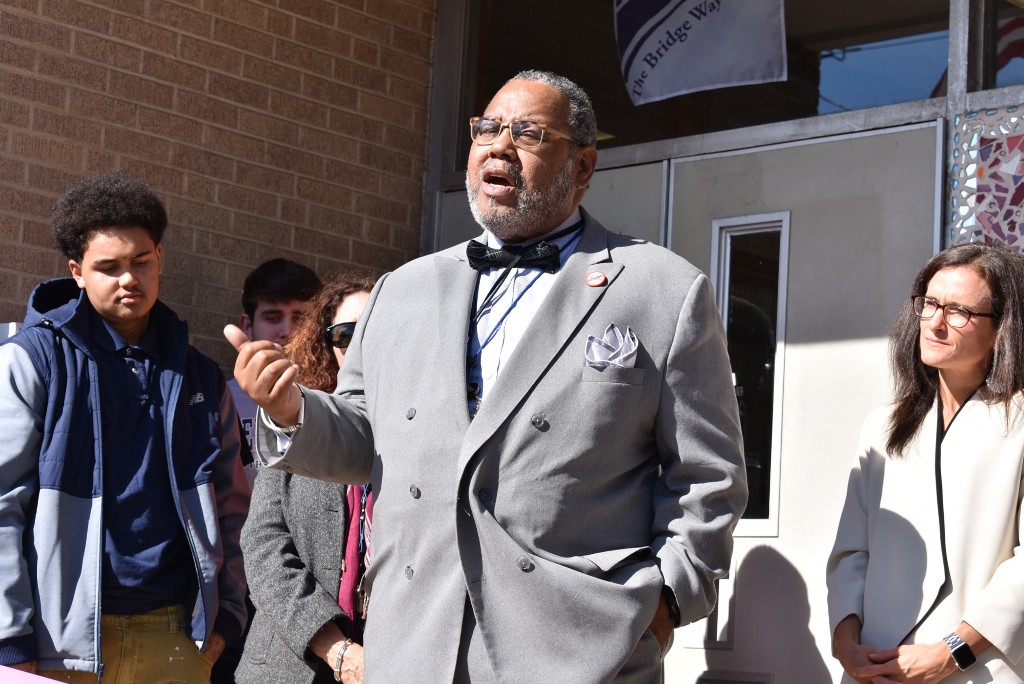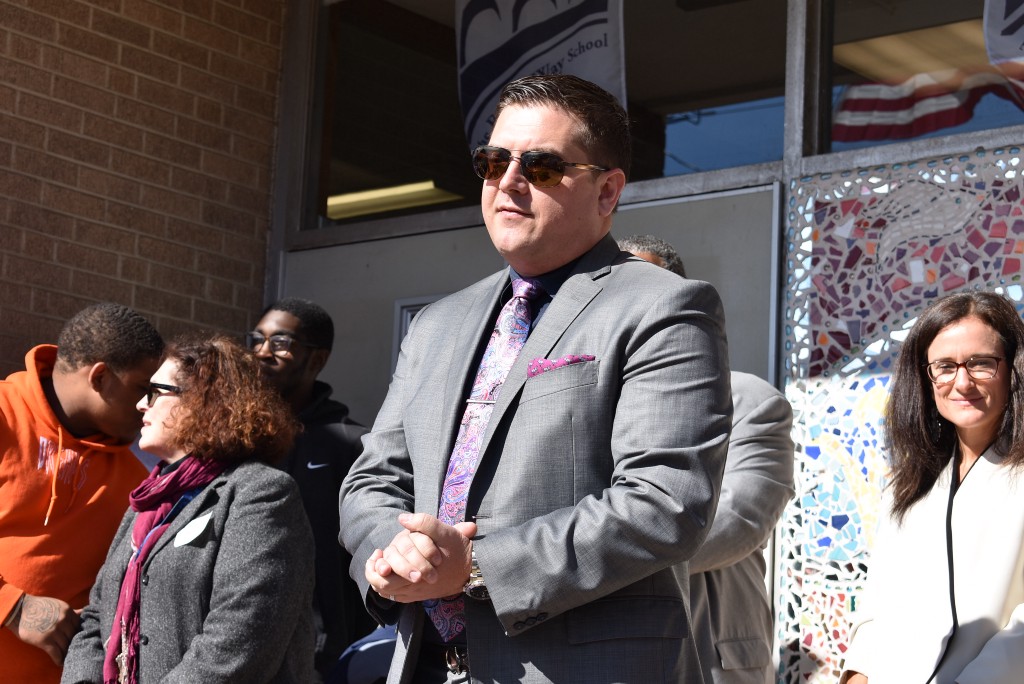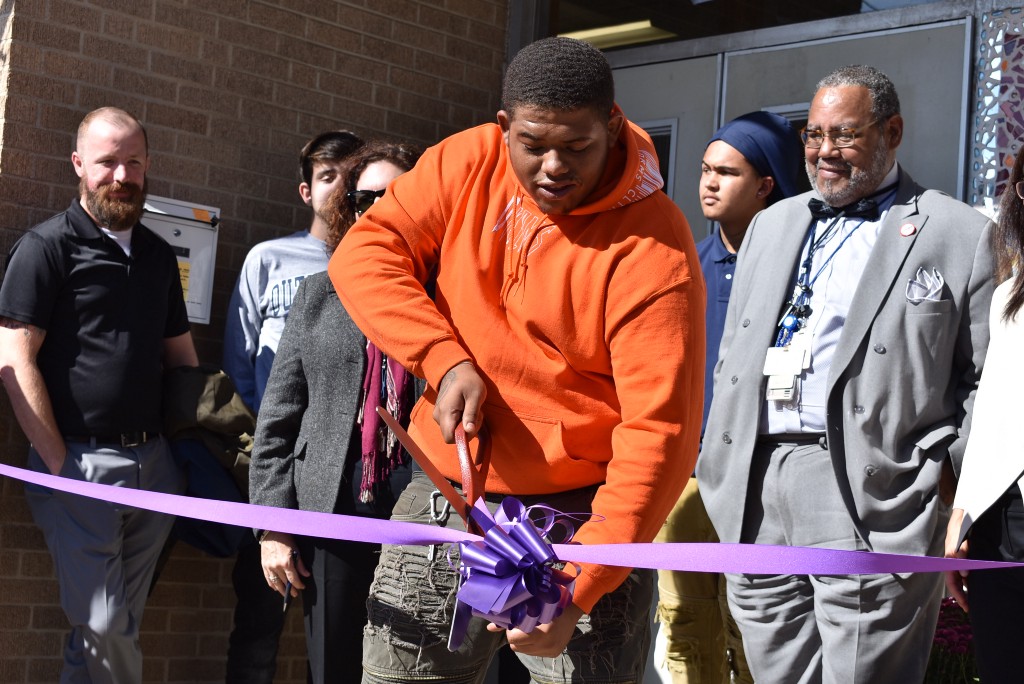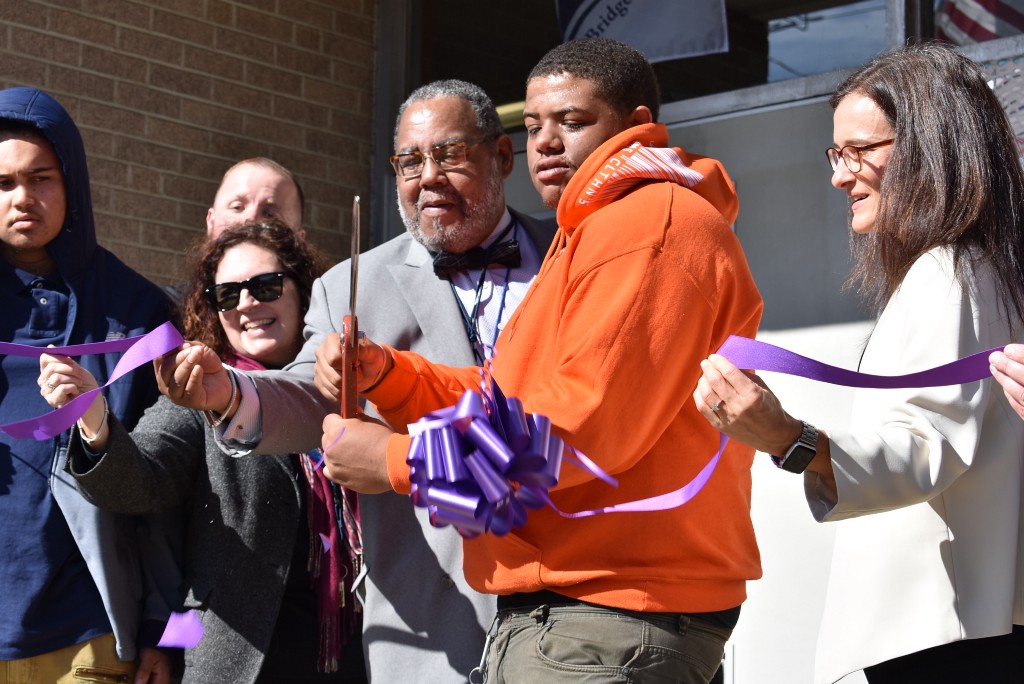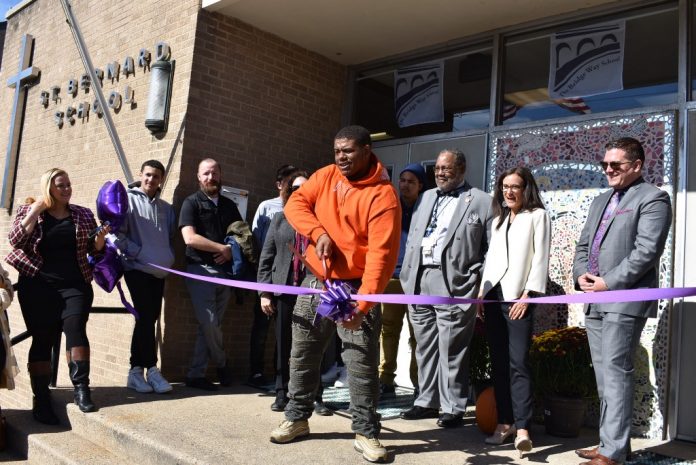The Bridge Way School, Pennsylvania’s first recovery high school, welcomed the community to its official ribbon cutting.
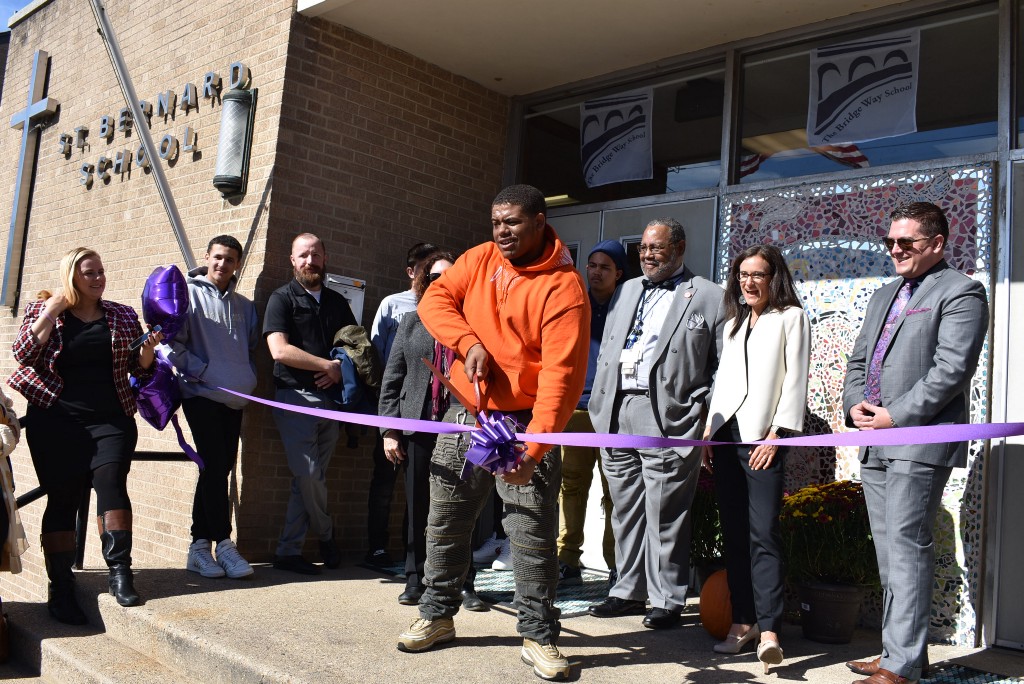
With a look of concentration on his face and about 50 pairs of eyes trained on him, Reno took the oversized pair of scissors and cut the ribbon.
The moment symbolized the official welcoming of The Bridge Way School to the community. Reno has been a student since it started operating at the former St. Bernard School at 7360 Jackson St. earlier this year, but the Oct. 19 ceremony was a way to show the community exactly what the school plans to do.
And that’s a big to-do list.
“This has been a struggle in terms of getting this far. But this is a victory today,” said Roland Lamb, deputy commissioner of the Strategic Planning and Innovation Division at the Department of Behavioral Health and Intellectual Disabilities Services.
“This is a victory that cannot stop, and it has to continue from the standpoint that we now have got to spread this message,” he said. “We have the only recovery high school in Philadelphia. We need to support that school and then begin the process of developing more high schools around Philadelphia.”
Lamb called Philadelphia a “silent partner” in the opening of the school.
“There’s a much larger choir out there we have to enlist to sing this song,” he said.
Board chair Nancy Peter spoke about how Bridge Way impacted her personally, with her son graduating from the school three and a half years ago. He’s now four and a half years clean and a junior in college.
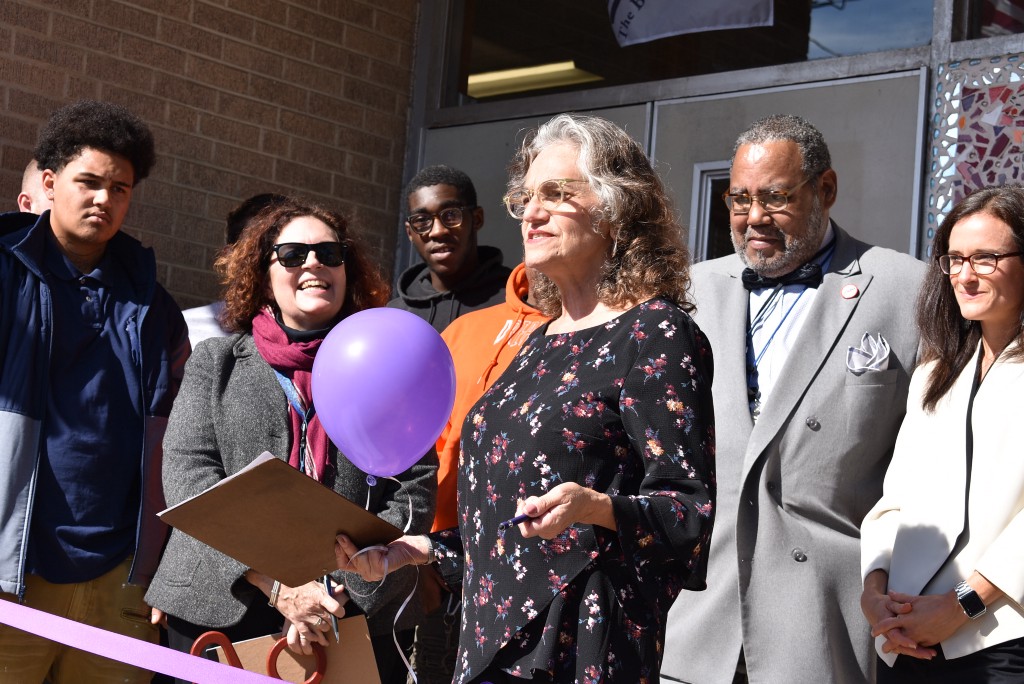
“How could I not put my effort into The Bridge Way School?” she said. She helped run a silent auction that would go toward school supplies.
CORA Services partnered with the school to provide clinical services to the students and their families.
“CORA is celebrating 37 years of serving kids and youth and families in this community, and we are really a full resource center for families,” said CORA CEO Anne Marie Schultz. “This program needs to exist, and it needs to be successful, and it needs to stay in Philadelphia, and it needs to be working with Philadelphia’s kids. And quite frankly, it needs to be in Northeast Philadelphia as far as I’m concerned.”
Schultz called the school a tool that had not been in CORA’s wheelhouse in terms of its mission for prevention and early intervention. According to the National Institutes of Health, 80 percent of kids who return to their previous high school after substance abuse treatment will relapse within the first year.
“It’s now our job that it stays and to make sure people know it’s here,” Schultz said.
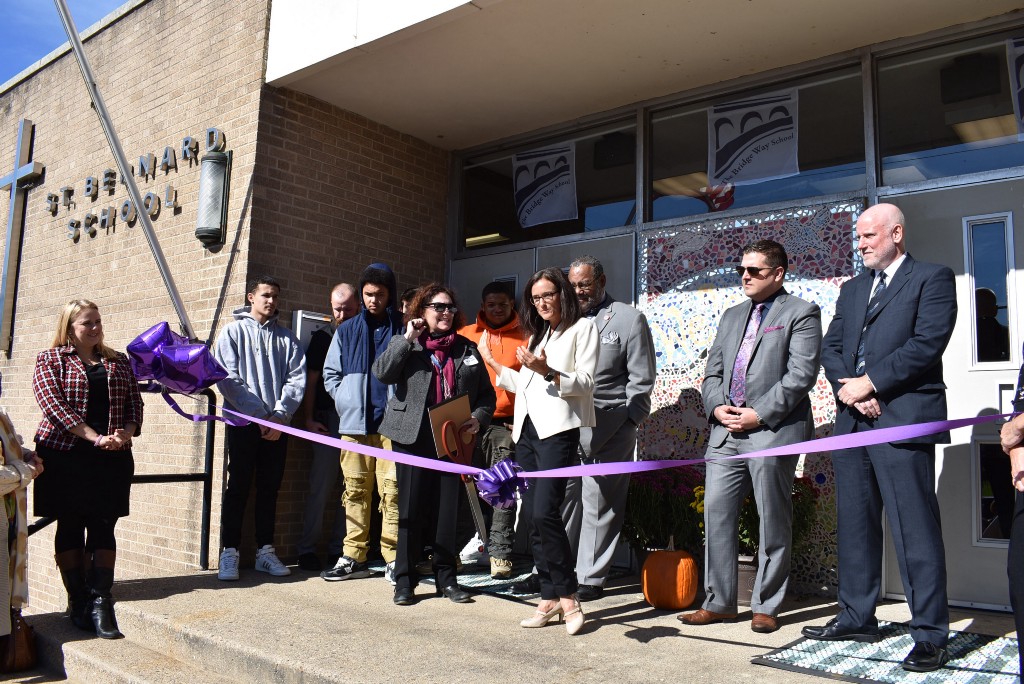
Bridge Way was designated as the recipient of the state’s recovery high school pilot program. Students will receive tuition from the sending district and the state, meaning there is no cost to families. This will apply to students in each of the school’s 20 seats.
“This is already becoming a game changer for our student population,” Bonner said.
City Councilman at Large Allan Domb, who regularly donates his salary to schools, announced he would donate a portion of his salary to Bridge Way. Domb said he hadn’t originally planned on donating to the school, but changed his mind after visiting.
“Of the 56 schools I donated to, this might be the most important,” he said. “The attendance record in Philadelphia is way below your attendance record here.”
Bridge Way’s attendance records hover around 90 percent, with the graduation rate seeing a similar figure.
Domb will help bring two programs that teach kids computer coding and personal financial literacy to the school.
The school can currently seat up to 20 students, but its impact can reach far beyond that, said Andrew Burki.
“When you take a kid and you provide the support services that are needed, it’s not just great for that kid and that family, it’s great for hundreds of other kids who remain in the high school whose drug use is not going to exponentially increase as a result of leaving the little Andrews of the world in that high school system,” he said.
Burki is the founder of Life of Purpose, which provides specialized and academically focused substance-use disorder treatment and is based in Fort Washington. Burki recounted his own experience with substance abuse, recounting how he had caused some of his friends to abuse substances as well.
“When we get the support services we need, we are an asset to this community,” he said. ••
